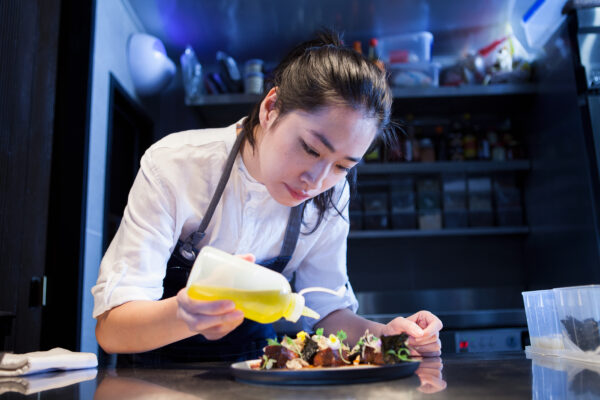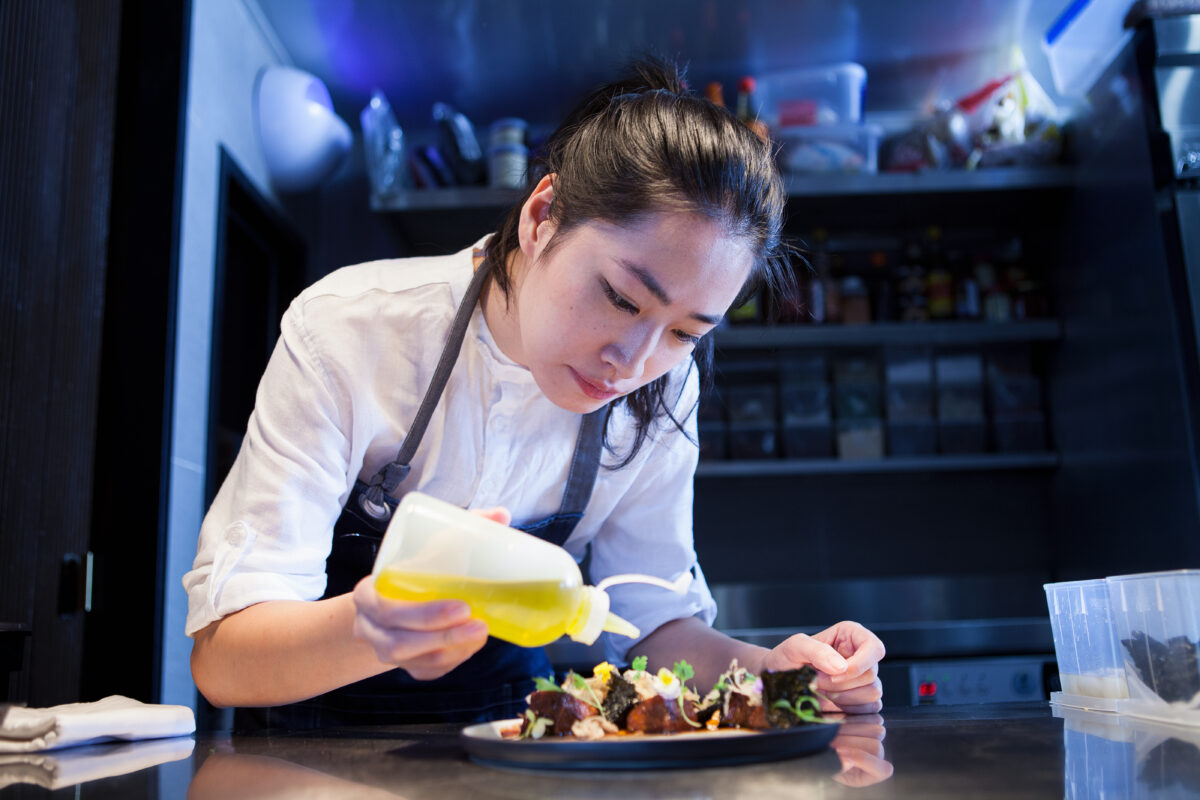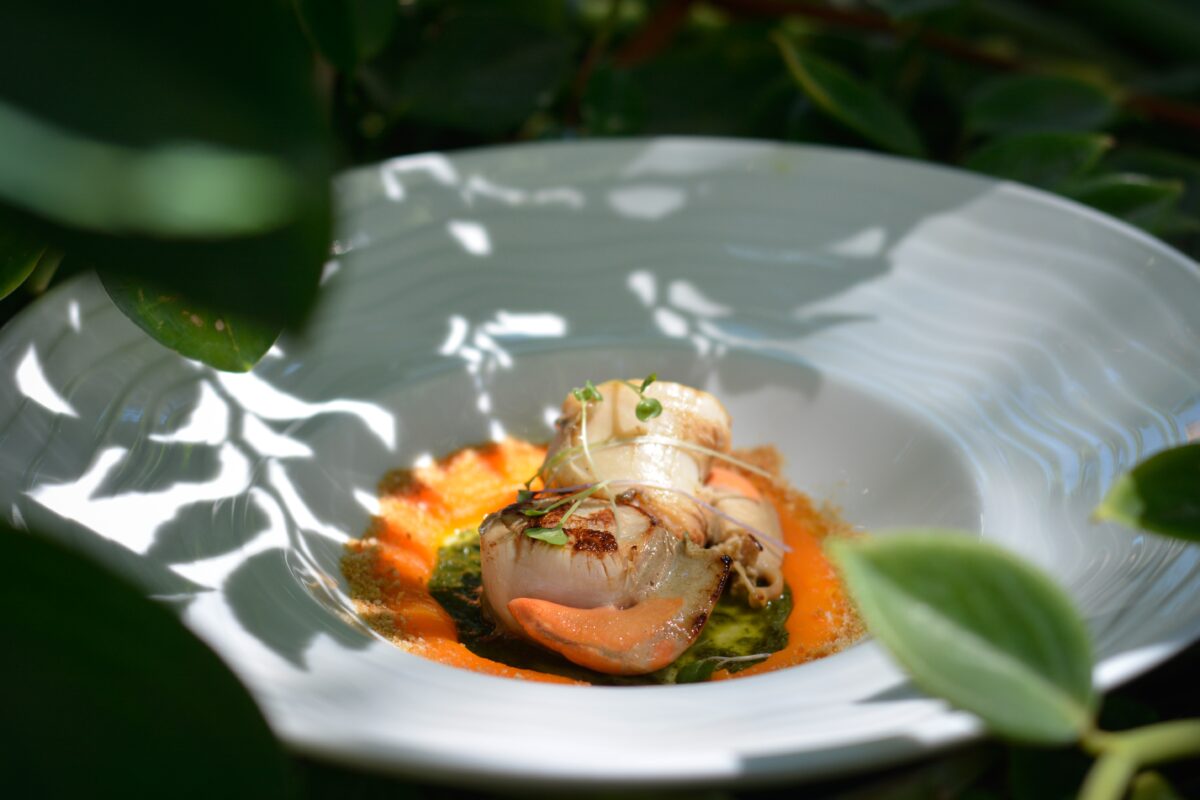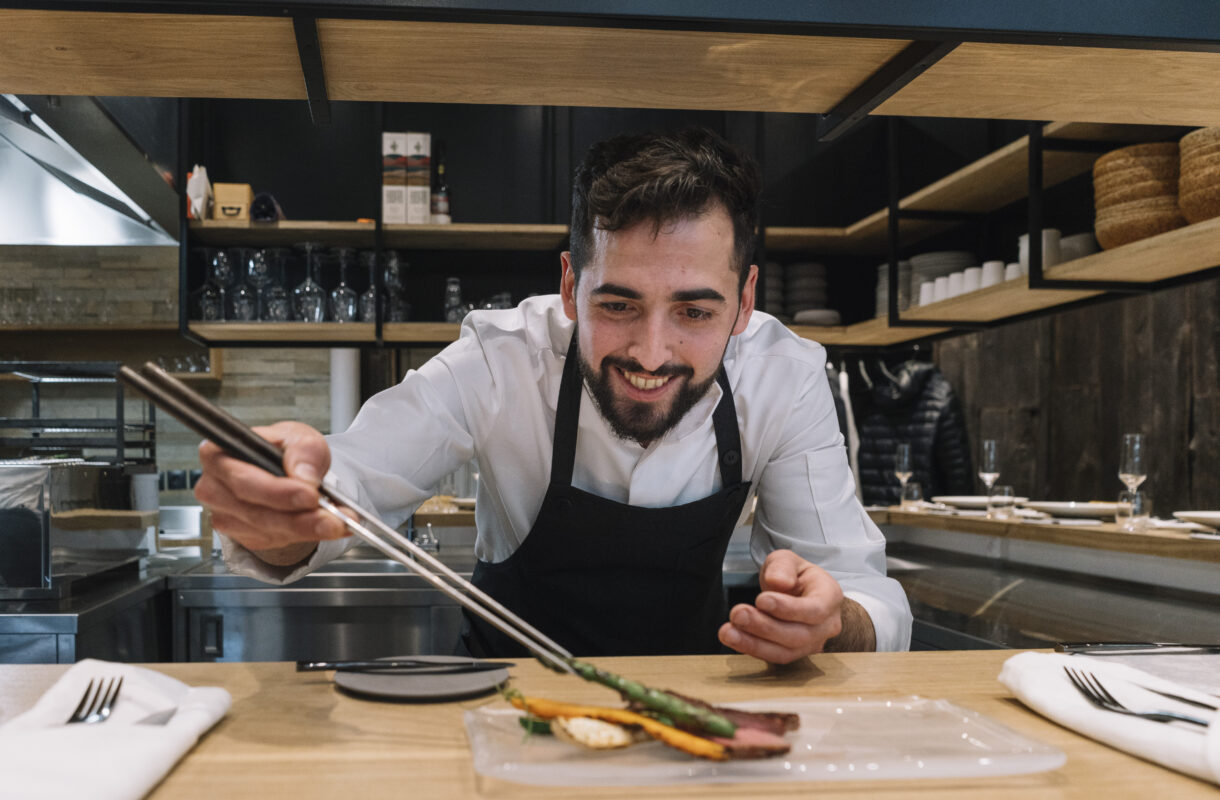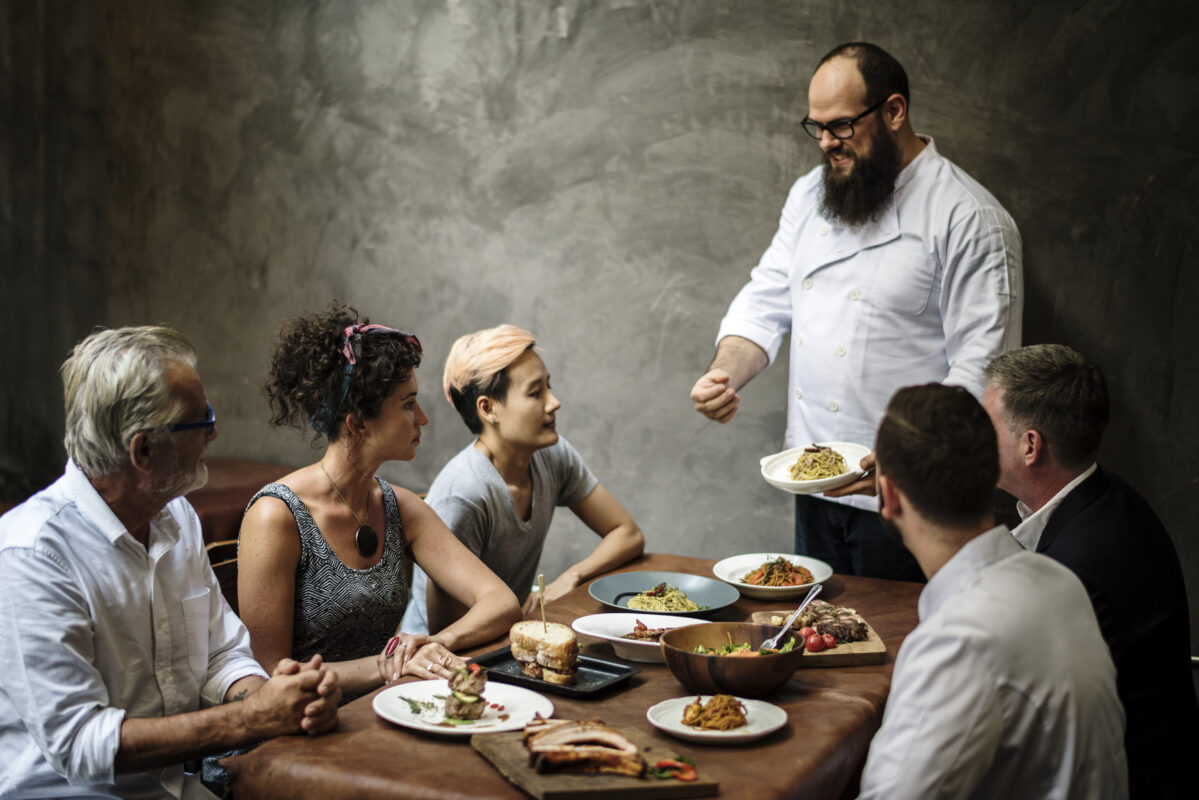How Chefs Earn Their Stars
Navigating the path of chef ratings can be quite a journey; unfortunately, there’s no one-size-fits-all system for this. Instead, we rely on various factors to evaluate and compare chefs.
When it comes to cooking and cuisine standards, opinions naturally differ. Still, we can use specific criteria to determine the standout chefs!
To rate chefs, we consider a mix of three factors: the number of awards they’ve won, reviews from peers and food critics, and the overall public perception. Each of these factors comes with its pros and cons, as we’ll explore.
In this article, let’s break down the key elements used to rate chefs, giving you an insight into why some chefs soar to the top while others face challenges.
What Awards Can Chefs Win?
Arguably, the most well-known award a chef can receive is a Michelin Star. This globally recognized rating system holds immense prestige within the restaurant industry.
In the UK, restaurants can also achieve an AA Rosette (or even multiple). This is another highly esteemed award indicating top-notch cuisine standards and a delightful ambience.
Media awards like Restaurant of the Year or Chef of the Year are highly coveted. These accolades, presented in both national and local press, maybe a bit more open to interpretation, making it slightly challenging to compare chefs directly.
And let’s not forget television show awards, such as those from ‘Masterchef: The Professionals’ and ‘The Great British Menu.’ These are sought-after accolades that play a significant role in assessing chefs.
All these awards enable us to rate chefs, especially head chefs or executive chefs, largely because they command respect within the industry. Winning one of these awards is a commendation for a job well done.
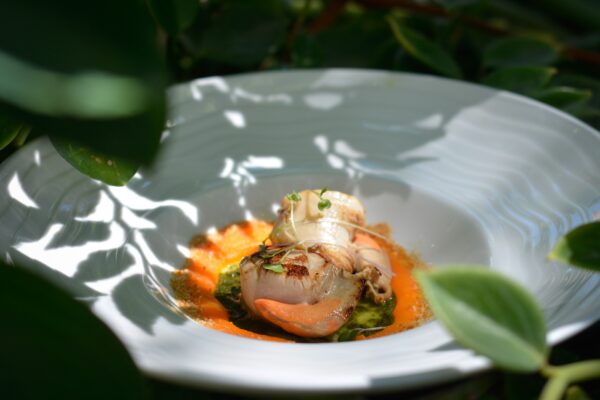
Are Michelin Stars a Reliable Indicator?
Michelin Stars are often considered the gold standard for rating chefs. The phrase ‘Michelin Star chef’ is a testament to the widespread recognition and respect the Michelin Guide commands.
Criticism has been directed at the guide in the past for favouring certain cuisine types. However, in recent years, they’ve made strides in recognizing excellent food, regardless of the setting, as evidenced by a catering stall in Singapore receiving a star.
Michelin inspectors, who are undercover diners with extensive food knowledge, maintain a high level of secrecy regarding their selection process and personal details. They are full-time employees who travel worldwide, experiencing up to 10 meals a week!
Inspectors visit hotels, restaurants, or other venues multiple times to ensure consistently high standards, regardless of the day of the week. This secrecy and inspectors’ expertise ensure that Michelin Stars are highly esteemed within the industry.
It’s noteworthy that Michelin Stars are awarded to restaurants, not chefs. However, we commonly refer to the chef as having the stars.
Despite their prestige, Michelin Stars aren’t universally desired. Some chefs have even returned their stars, as highlighted in this article featuring Marco Pierre White.
Individuals declining a star have their reasons, often disagreeing with the rating system. Whether this stems from artistic temperament or valid concerns is open to interpretation.
If you owned a restaurant, would you want it to win a star? The answer may seem obvious but consider potential downsides. Would customers be deterred from associating Michelin Stars with expensive small portions? What if you lost the star—would people assume your standards had slipped?
Even the Michelin Star system is open to interpretation. Perhaps food critic reviews offer a more accurate way of rating chefs.
Is Critic Feedback the Right Gauge for Chefs?
Assessing chefs through critiques from food experts and peers can be an excellent method. Experts appraising other experts is a global model for evaluating someone’s contribution.
Yet, the challenge with cuisine is that, unlike certain industries like science, cooking is an art form, subjective and open to interpretation.
Take my personal experience as a chef disliking dill, for instance. My taste bias might influence my review of a dish that includes dill, even though others might enjoy it. Personal preferences often complicate critic reviews because what one person loves, another may dislike. The key is setting personal opinions aside to fairly evaluate the culinary experience.
Personal biases become less of an issue in peer reviews by other chefs. Since chefs are professionals, they can appreciate and admire great cuisine without necessarily enjoying it themselves.
Food critics’ relationship with chefs can be a bit of a rollercoaster. Some critics are knowledgeable and fair, while others seem to relish writing scathing reviews, making it hard to determine fairness.
However, renowned critics, like those on the Great British Menu, earn a reputation for being among the best globally, and their opinions are highly valued.
Local media reviews can be tricky to navigate, as they sometimes appear influenced by personal connections or advertising revenue. Distinguishing genuine critics with unbiased opinions from the rest can be challenging.
In conclusion, reviews by critics and peers offer a good way to rate chefs, but they should be taken with a pinch of salt.
As a chef, I pay attention to restaurant reviews I read but keep an open mind until I experience it myself or hear feedback from industry colleagues.
Industry reviews present a bit of a minefield when rating chefs. Perhaps a more reliable alternative is to consider reviews from the most important critics—the customers, the general public.
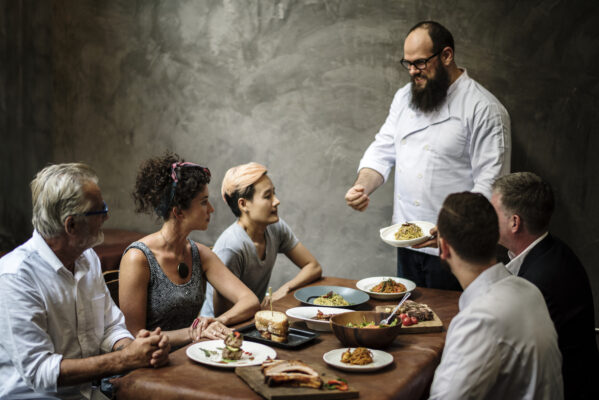
Are Online Reviews Reliable?
With the rise of online review sites like TripAdvisor, we now have access to a vast number of reviews to rate chefs.
Despite awards and accolades, the best way to rate a chef might be if the general public chooses to eat at their restaurants and enjoys it!
Ultimately, even a restaurant with multiple awards may struggle if the public doesn’t enjoy it. Negative online reviews can impact a restaurant, making it essential to consider the broader public’s opinion.
Many people check online reviews before dining out. Personally, when in a new city, I Google local restaurants, paying attention to the number of stars on Google.
Alongside online reviews, word of mouth remains a great way to boost a local chef’s profile. Positive dining experiences shared among friends can quickly elevate a restaurant’s reputation.
However, relying solely on customer reviews has its challenges. People are more likely to share bad experiences than good ones, leading to a potential bias towards negative reviews.
Online reviews have their place, but they also have limitations when it comes to rating chefs.
The Best Method for Rating Chefs?
Considering all the options, the fairest way to rate chefs, in my opinion, is through the Michelin Star and Rosette award systems. These highly respected and unbiased opinions from industry professionals play a significant role in the catering industry, influencing job opportunities and wages.
A head chef with a Michelin Star on their CV commands more respect and can negotiate higher wages. Similarly, a chef with a good local reputation among peers has more job options.
While positive food critic reviews, local awards, and high online ratings add value to a CV, they don’t carry the same weight as industry accolades.
Chefs aiming for fame through shows like “Come Dine with Me” or “I’m a Celebrity” may not necessarily enhance culinary standards, but it’s a way to increase restaurant visibility.
In the end, chefs are primarily judged by other chefs who recognize the value of rosettes and Michelin Stars as indicators of true culinary excellence.
Considering all the rating factors is crucial, given the subjectivity in comparing chefs. Like judging a painting, one person’s highly rated chef may be dismissed by another. Chefs possess diverse skill sets, making it challenging to rank them. For aspiring chefs, maintaining consistently high standards is key, as those who perform well will always be admired by others.
